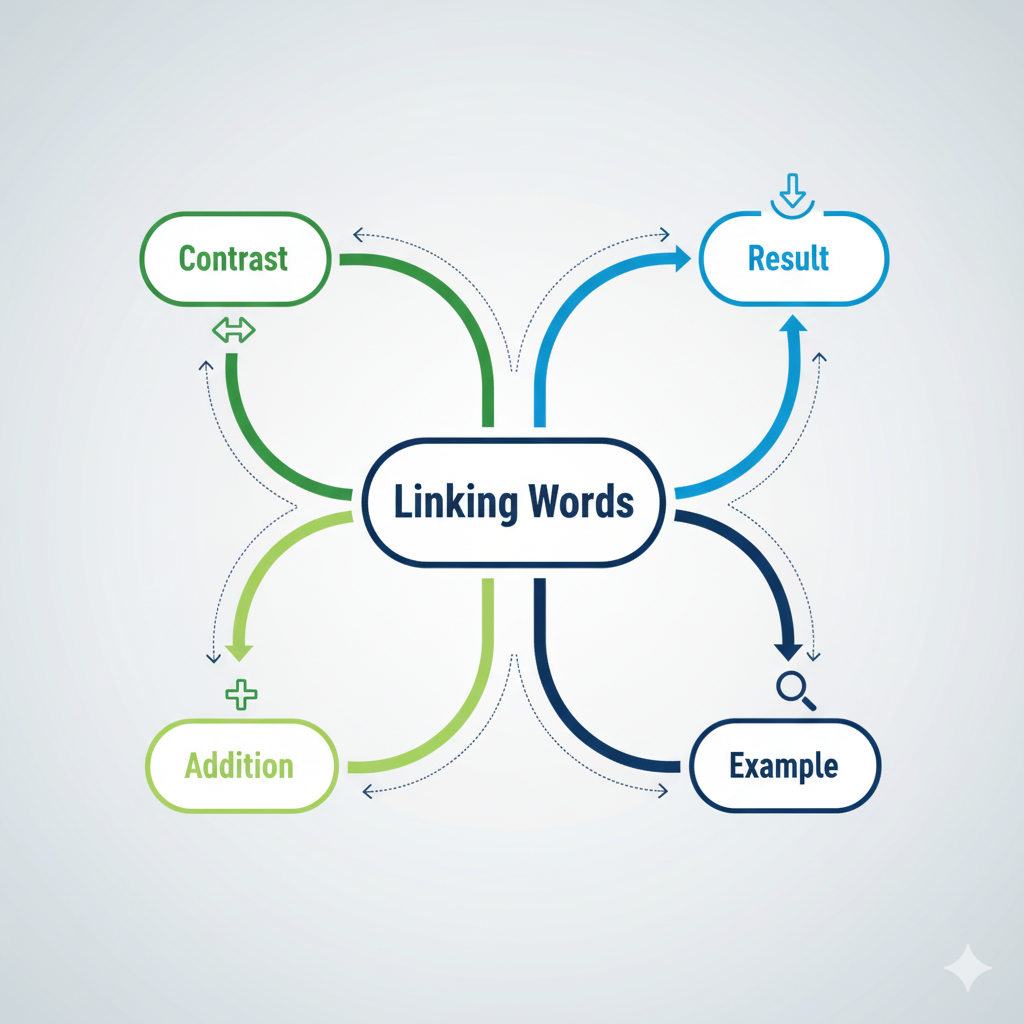
Introduction:
Linking words (also called transition words or connectors) are the glue that holds your essay together. They are crucial for a high score in Coherence and Cohesion. Using a range of accurate linking words signals sophistication to the examiner.
Here are 10 powerful words to replace basic ones:
- Furthermore / Moreover (Replaces And, Also)
- Use: To add another point to the same argument.
- Example: “Learning a language is cognitively beneficial. Furthermore, it promotes cultural understanding.”
- Nevertheless / Nonetheless (Replaces But)
- Use: To introduce a contrasting point in a formal way.
- Example: “Urban living is expensive. Nevertheless, it offers unrivalled job opportunities.”
- As a result / Consequently (Replaces So)
- Use: To show the result or consequence of something.
- Example: “Fossil fuels are being depleted. Consequently, governments are investing in renewable energy.”
- In order to / For the purpose of (Replaces To)
- Use: To state the reason for something more formally.
- Example: “Strict laws are needed in order to protect the environment.”
- For instance / To illustrate (Replaces For example)
- Use: To introduce a specific example.
- Example: “Many skills are learned online. For instance, people can master languages through apps like Duolingo.”
- On the other hand / In contrast (Replaces But for comparing views)
- Use: To show the opposite side of an argument.
- Example: “Some argue technology isolates people. On the other hand, it can connect people across the globe.”
- Therefore / Thus (Replaces So for conclusions)
- Use: To state a logical conclusion based on evidence.
- Example: “Plastic is non-biodegradable. Therefore, it causes long-term pollution.”
- Despite this / Regardless of this (Replaces But after a previous point)
- Use: To introduce a surprising contrast to the previous statement.
- Example: “The campaign was well-funded. Despite this, it failed to achieve its goals.”
- In addition to / Additionally (Replaces Also at the start of a sentence)
- Use: A formal way to add information.
- Example: “Tourism boosts the local economy. Additionally, it creates jobs for residents.”
- In conclusion / To conclude (Replaces In summary)
- Use: To signal the final paragraph of your essay.
- Example: “In conclusion, I believe the advantages of this trend are greater than the disadvantages.”
Pro Tip: Don’t overuse them. Every sentence doesn’t need a linker. Use them strategically to signpost your argument.
